TMR World Picks are selected by our editors. We welcome your suggestions: editor@themarkaz.org.
TMR
Ciné-Palestine promises an exceptional 10th edition with 10 days of cultural events
Mar 4 — Mar 12, various venues, Toulouse— more info
This year, to mark its 10th edition, Ciné-Palestine is offering a host of meetings, film screenings, initiatives in schools, alongside a photo exhibition titled Childhood in Gaza. Also taking place is a concert titled Artists with Palestine , a contemporary dance workshop led by Maher Shawamreh as well as readings of literary works, notably Songs of the Streets, a poetic and musical journey taken from a collection by the late poet Samih al-Qasim.
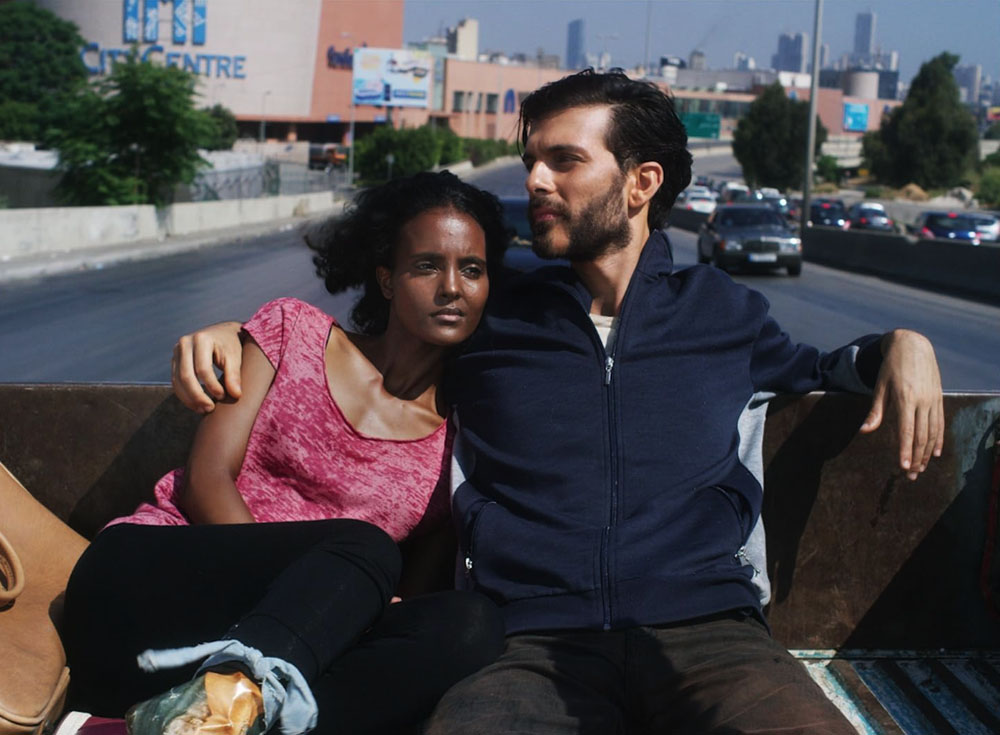
Rachid Koraïchi: Celestial Blue
Mar 7 — April 13, London —more info
October Gallery presents Celestial Blue, a solo exhibition of new works by the renowned Algerian artist Rachid koraïchi. In accordance with Koraïchi’s predilection for the magical number 7 – considered significant in all the major traditions – Celestial Blue celebrates the artist’s 77th year. This exhibition includes canvas works interspersed with statuesque steel sculptures, in his characteristically figurative forms influenced by a fascination with signs: symbols, glyphs and ciphers drawn from a variety of languages and cultures.
The works on canvas are inspired by the nasibs that the 12th century Sufi mystic and writer, Ibn ‘Arabi, set down in his book of love poems, The Interpreter of Desires (1215). Each large, square canvas presents an original design produced in white on an indigo blue ground that improvises upon one of the original poems.
Celestial Blue continues Koraïchi’s unique exploration of the spiritual path and its fundamental message of Tolerance for all. His art reveals how ancient practices still have relevance today.
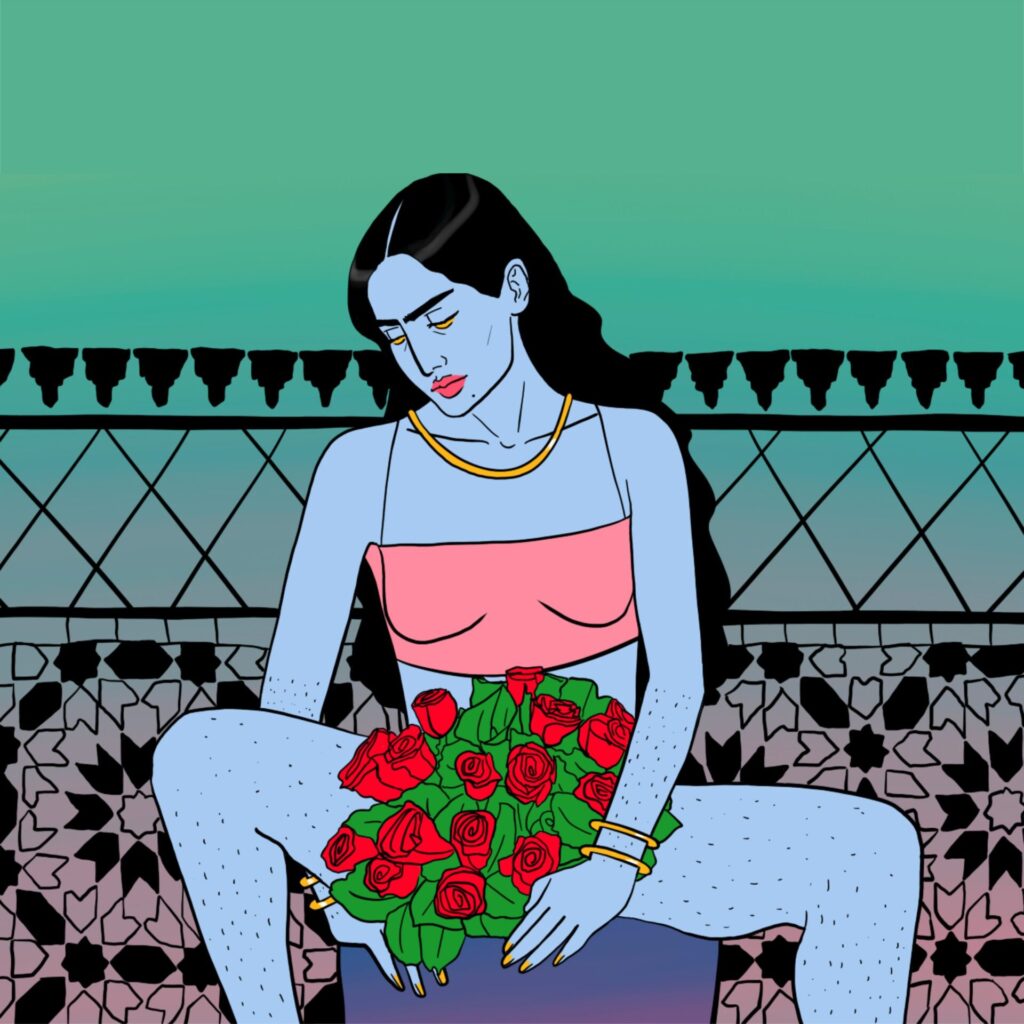
Transfeminisms Chapter I: Activism and Resistance
Mar 8 —April 20, Mimosa House, London — more info
Mimosa House presents the first chapter of transfeminisms, a major survey touring show, that brings to light a multiplicity of urgent, pressing and ongoing issues faced by women, queer and trans people across the globe.
The first chapter features artists whose work engages with political protest, in both public and private spheres, unpacking complexities related to freedom of speech, sexual and reproductive freedom, and struggles against state violence and Western colonisation. It will include works by Zainab Fasiki (Morocco), Kyuri Jeon (South Korea), Alex Martinis Roe (Australia), Fatima Mazmouz (Morocco), Ada Pinkston (U.S.), Bahia Shehab (Lebanon) and Lorena Wolffer (Mexico).
According to the organizers, the title of the exhibition, transfeminisms, is “deliberately provocative. The prefix “trans” implies ‘across, beyond, through, on the other side of, to go beyond’; while the ‘s’ in ‘feminisms’ accounts for and recognises the innumerable definitions of feminism worldwide. Our intention is for transfeminisms to be understood as an all-inclusive, de-colonial term – one that takes us across and beyond feminisms (as in: transcultural, transcontinental, transgender, transformative, transgression, transitory, translucent, transparent, transaction, translation, transfusion, transmission, transmutation). By opening up feminisms to encompass innumerable ‘trans’ possibilities, we hope to demonstrate the irreducibility of feminism itself.”
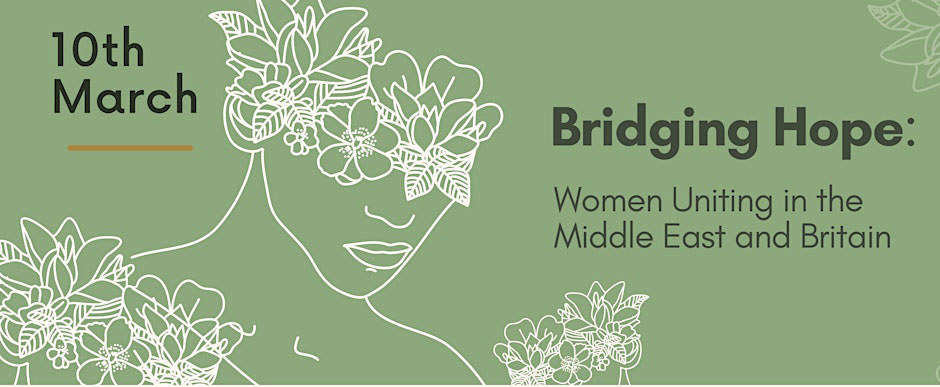
Bridging Hope: Women Uniting in the Middle East and Britain
March 10 — London — more info
Muslim and Jewish women activists from the West Bank, Israel and the UK come together to explore avenues of hope amidst the challenges faced in the Middle East — not least the tragic loss of so many innocent lives. Some of the questions they will discuss are: what credible diplomatic horizon offers a path to peace? How do Palestinian and Israeli peace activists face combat prevailing feelings of hopelessness among the two sides when confronting a horrific war, the continuing barriers of occupation and international interventions. And critically, can women — often the chief victims of war and terror — emerge as the positive force that is so badly needed? Could they succeed where male politicians and armed groups have faced — and invariably failed — so many tests?
On the panel are Ahlam Akram, chair and founder of Basira Arab Women’s Rights Group; Laura Marks, co-founder of the Muslim-Jewish network Nisa-Nashim; Peta Jones Pellach from the 45,000 strong Jewish and Palestinian citizens of Israel Women Wage Peace organization; and Layla Alshekh, a bereaved mother and activist from Bethlehem’s Israeli-Palestinian Parents Circle/ Bereaved Families Forum. Alona Ferber, senior editor, at the New Statesman, is the moderator, with participants in person and on Zoom. Bridging Hope: Women Uniting in the Middle East and Britain, organized by Meretz UK and Insaan Culture Club, will take place on Sunday, March 10, from 14:00-17:00, at the Highgate Society, 10A South Grove, London N6 6BS. Ticketed event. To be followed by live music and refreshments. Ticketed event.
Meet the Middle East in the Translation Roundtables and Political Panels at the London Book Fair
Mar 12 — Mar 14, at Olympia London— more info
The London Book Fair is an annual three-day event and the most important activity that takes place is the selling of books’ foreign language rights to publishers around the world. According to literary journalist Olivia Snaije, “There isn’t enough Arabic literature being translated into European languages, if you compare it with literature in other languages.”
She says she tries to put herself, for example, in the shoes of a German publisher. “Once I’ve found an interesting book how do I go about getting the rights for it. I can’t read the book, can’t read the publisher’s website because they’re in Arabic. It’s all very opaque. As many Arab publishers have told me, it’s opaque for them as well.” Issues of privacy, poor distribution and censorship, not to mention huge translating costs, bedevil the region’s book scene.
The publishing initiative LEILA is about to change this, and the seminar on this pioneering website at the London Book Fair, supported by Words without Borders, has become a hot-ticket item for publishers, translators, authors and rights managers interested in the Arab world. Layla, which means night in Arabic, has a long tradition in Middle Eastern literature, because of Alf layla wa-layla (Thousand and One Nights) and the totemic crazy love story, Majnûn Layla.
This modern-day inception of LEILA stands for the reverse acronym of “Arabic Literature in European Languages.” The website promotes and enables the translation and circulation of new Arabic-language literature. More importantly it provides a host of resources online: application grants to apply for, literature festivals, even translated excerpts of Middle Eastern writers in different European languages and research studies, which shows how much Arabic literature is being.
Snaije joins Arabic literary translator Sawad Hussain; Abdel-Wahab Khalifa, senior lecturer in Translation and Interpreting at Queen’s University Belfast, and LEILA project coordinator Anne Millet in a roundtable discussion on Arabic literature in translation and its availability on Wednesday, March 13, from 3:25 to 4:10 p.m. for LEILA at the Literary Translation Centre.
A long-standing tradition at the LBF is the English Pen Salon. The 2024 program includes conversations on freedom of expression and literature in the UK and beyond. One of their themes this year is: Israel, Palestine and freedom of expression in the UK, among other topics.
On Tuesday, March 12 at 3–4 p.m. Palestine, Israel, and Free Expression in the UK , Neve Gordon, Yasmin El-Rifae, Avi Shlaim, and Selma Dabbagh will unpick the impact of the Israeli-occupation of Palestine — and especially the most violent aspects of both opposition to it and its enforcement in Britain. PEN International has issued a statement on attacks on journalists and media infrastructures and the call for a ceasefire.
On Wednesday 13 March at 3–4 p.m. Activism in Iran with the translator Poupeh Missaghi, The Markaz Review’s Malu Halasa, The Times’ foreign correspondent Christina Lamb will discuss recent trends in Iran in regards to the Woman Life Freedom movement. From In the Streets of Tehran, an anonymous woman describes her daily activism as part of a long and powerful tradition of female resistance. In the anthology Woman Life Freedom, Malu Halasa explores the rise of creative resistance that followed Jina Mahsa Amini’s death at the hands of Iran’s Morality Police. They will also consider the lack freedom of expression in Iran and how this shapes the form of protest, the importance of documenting every day activism, and the great risks of doing so.
On Thursday, 14 March 11.15 a.m.–12.15 p.m. Writing against Violence: Palestinian Literary Voices, Saqi Books’ publisher Elizabeth Briggs and Palestinian novelist Isabella Hammad, playwright Hannah Khalil, and poet Rafeef Ziadah will discuss the value of producing, sharing and championing Palestinian culture and literature in the face of military bombardment, and what should be the role literature during war and occupation. This event is in partnership with PEN International.
For those attending the London Book Fair, add these events about publishing in the Middle East and the hard ideas shaping the region to your calendar.
Out on Film: “Queer All Year” Mini Fest
Mar 19 — Mar 21, Atlanta — more info
Out on Film is offering three diverse films over three days. What caught our eye, was The Judgment (2023) written and directed by Egyptian filmmaker Marwan Mokbel, who previously directed the film Ouija Summoning. It stars Joseph Abboud, Layla Amari, and Junes Zahdi.
This latest horror film follows an Egyptian gay couple who return from the US to Egypt for a family emergency, forcing themselves back into the closet and pretending to be friends. When they fall prey to witchcraft as punishment for their “homosexual sins”, one of them falls into religious terror and exposes his unhealed past.
It’s been described by one movie-goer as “an effective slow burn of a horror movie about how much we can internalize oppression and suppression of who we are.”
Institut du Monde Arabe History Days
Mar 23 — Mar 24, Paris— more info
The IMA History Days are two days dedicated “to understanding the Arab world, its history and the connections of this history with current issues.” Already celebrating its 10th edition, the History Days of the Arab World organizers have themed the program around “Love in the Arab world” in which love in all its forms will be explored during this weekend, through round tables, readings of texts, cinema screenings, artistic performances and musical conferences.
The full program can be found HERE.
Stitching Keffiyehs: moving images from Palestine
Ongoing — March 16, Berkley University, California —more info
This important exhibition on display at the Worth Ryder Art Gallery, a central social and artistic hub of the UC Berkeley Department of Art Practice, features works by renowned artists representing diverse communities from Palestine and its diaspora.
At a time when Palestinian voices are increasingly censored and denied platforms for expression, Stitching Keffiyehs provides a vital space for dialogue and reflection on themes such as land, exile, war, occupation, ecological decline, technology, femininity, and the body.
The exhibition includes film and video art spanning from 1987 to 2022 and offers a rare glimpse into the rich tapestry of Palestinian culture, experience, and resistance.
Immortal Moment – Coping with the Shock
Ongoing —April 15, Alserkal, Dubai — more info
This exhibition, on display at the Ayyam Gallery in Alserkal in Dubai, showcases the second body of work from the Immortal Moment project, in which Bahraini-born, Saudi national artist Faisal Samra creates artworks through the accumulation of instances, pushing the viewer to question the opportunities of a single moment.
While the concept of fight or flight is thoroughly examined in the fields of medicine and psychology, Faisal introduces a novel conceptualisation of it through his artistic practice. At a moment of shock, either the moment dominates and controls us, or we absorb and adapt to it, metamorphozing into a new form. To survive and overcome the shock is what we call coping. In the spirit of fight, the artist intervenes post gesture to cope with what chance and the laws of physics produce.



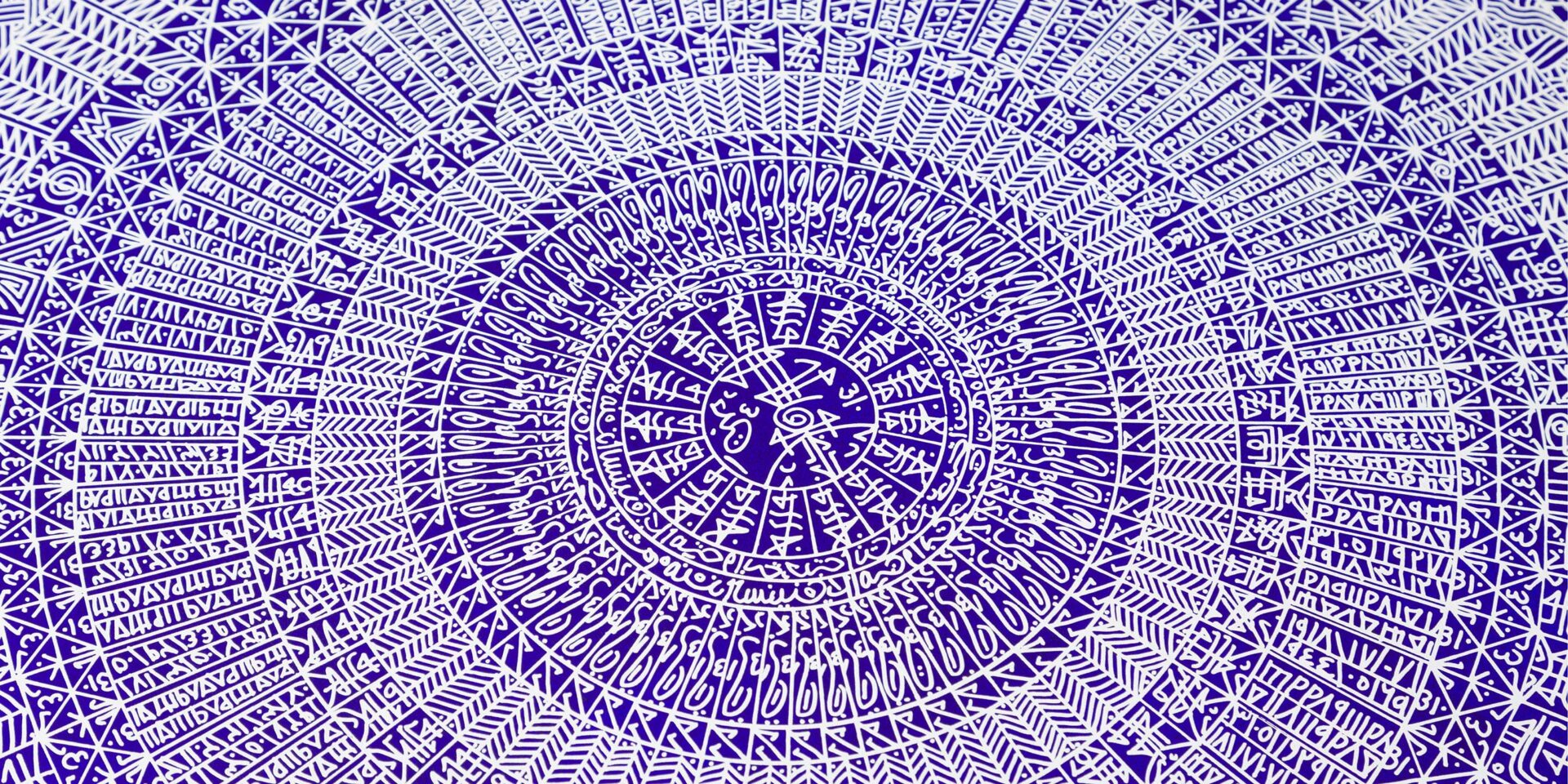

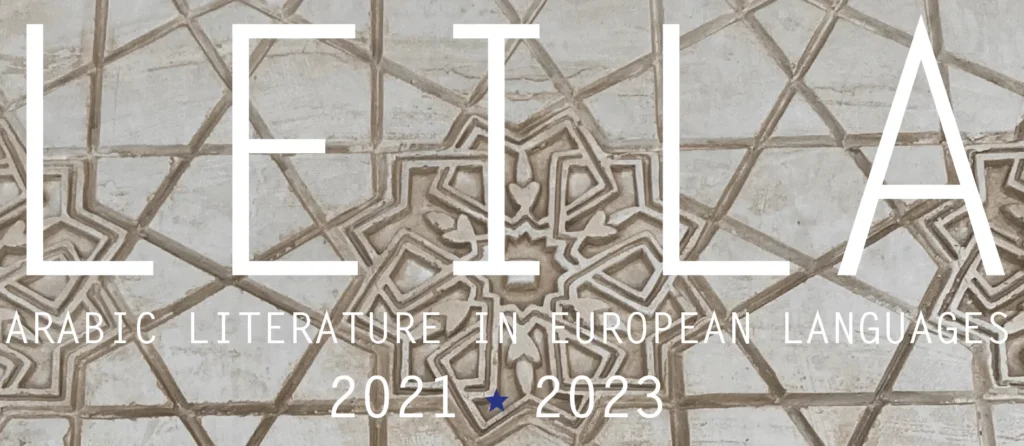
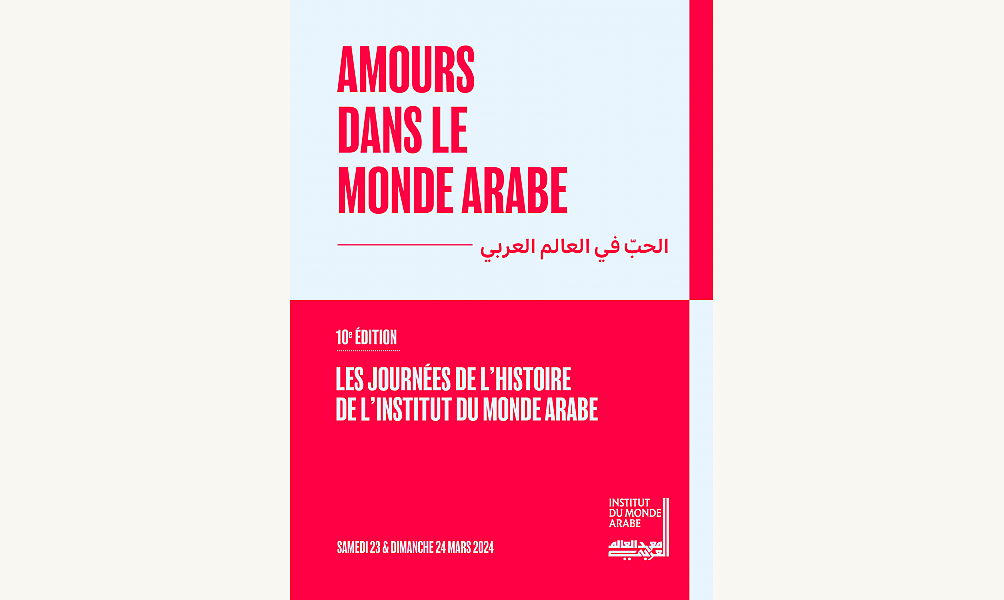
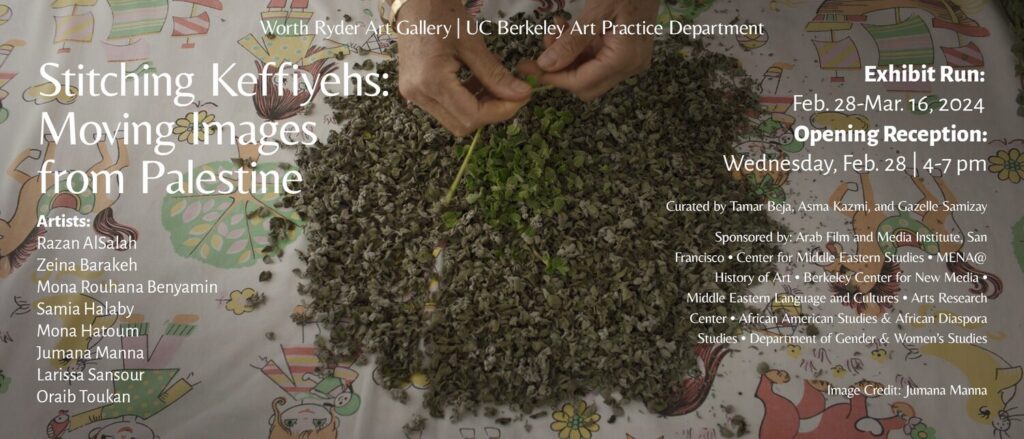
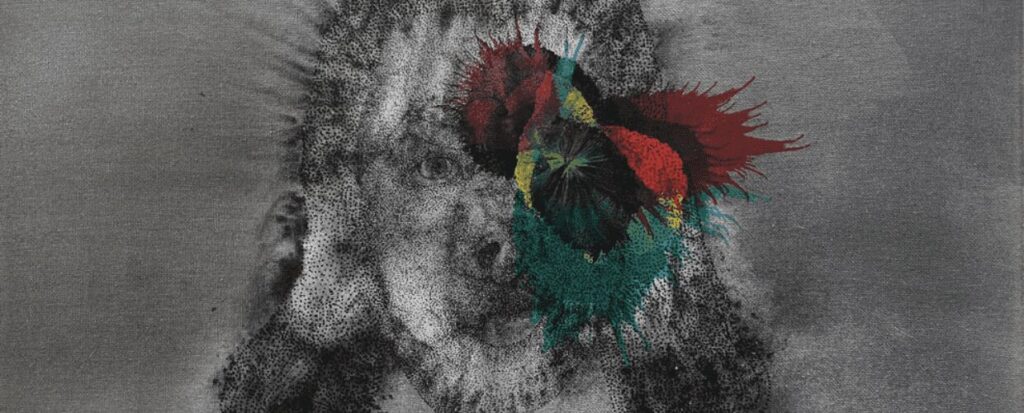
Please subscribe me
Will do. We’re glad you’re joining the TMR community 🙂